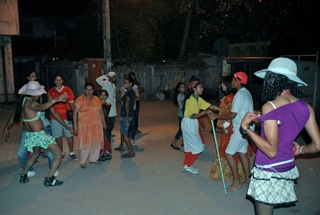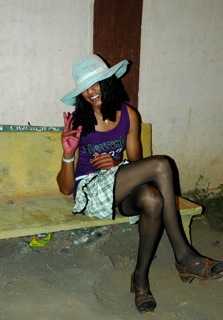Daman Day 2013 – Press Release
FOR IMMEDIATE RELEASE
DAMAN, January 30th 2013: 2nd of February, the historical date (02.02.1559) when Damão first came to be, has been celebrated worldwide by Damanenses as ‘Dia de Damão’ (Daman Day) for centuries.
The festival is a celebration of the unique culture of the people of Daman and includes musical festivals, food festivals, traditional/folk dance performances, art & craft displays and various competitions that encourage artistic expressions of their culture.
The essence is celebration of all that is inherently old-world, ‘Damão’ – the sights, the sounds, the senses and the ‘saudades.’ The mandate – “Feel, think, breathe, live, eat and drink, to Damão!”
The celebrations begin in August, along with World Goa Day celebrations, in countries like the UK, US, UAE, Canada, and Holland among others, and culminate on Daman Day on the 2nd of February which is celebrated in Daman, Macau and Portugal.
The theme for Daman Day 2013 is “Viva Damao! Raise a toast to traditional Damanense cuisine!” The theme comprises a title and a subtitle. While the title, “Viva Damão” is permanent, the subtitle changes every year. The themes in the last few years have been:
2012: “Viva Damão! 100% Música Portuguesa!”
2011: “Viva Damão! Proud to be Damanense!”
2010: “Viva Damão! Eu falo Português!”
2009: “Viva Damão! Come, Discover Daman!”
2008: “Viva Damão! Keep the culture alive!”
Daman Day is a self-financed initiative of the Damanenses under the aegis of World Goa Day and its founder, UK-based Rene Barreto. Each participating country has a ‘Country Coordinator’ who is in constant touch with the Daman-based ‘Overall Coordinator’ and founder, Noel Gama.
Beginning last year, the organisers in Daman, teamed up with the Daman Municipal Council (DMC) to celebrate the event jointly as the council has already been sponsoring the traditional annual mass commemorating the feast of Our Lady of Purification and N S das Candeias every February 2nd at the DMC Square.
The event launches with high mass in honour of the patroness of the city, Our Lady of Purification at 6pm, followed by a cultural program showcasing Damanense folklore which will include a play in Portuguese, Damanense folklore and traditional Portuguese and Damanense dance performances by local artists and musicians.
More information can be found at www.Discover-Daman.com
Noel Gama
Overall Coordinator – Daman Day (Dia de Damao)

















